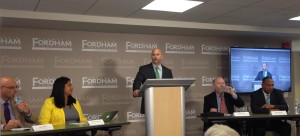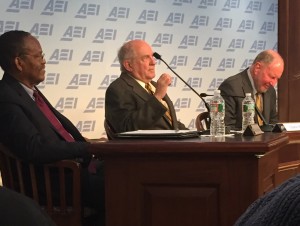I can’t quite believe that my seven weeks interning at The Center for Education Reform (CER) are nearly over. It seems like yesterday was my first day.
During my time here, I have been exposed to the demands of nonprofit work, learned about the intricacies of educational policies and have had the opportunity to attend all types of events, from a panel discussion on Capitol Hill about special education to a survey briefing at the American Enterprise Institute (AEI) featuring CER’s own president, Kara Kerwin. The other interns and I even had the chance to spearhead and coordinate our own event. It required countless hours of preparation and collaboration but was a rewarding experience that proved to be a huge success.
My two favorite events centered on socioeconomic status, academic attainment, and educational opportunity. As a sociology major, these topics greatly interest me. The first one was at the American Enterprise Institute and was a critique and discussion of Robert Putnam’s newest book, Our Kids: The American Dream in Crisis. The other, a webinar presentation hosted by the American Institutes for Research, examined inequities within and across education systems and students’ ability to thrive academically despite socioeconomic setbacks.
These events resonated with me because they reminded me distinctly why I want to be a leader in education. I want to provide a voice for those who are usually voiceless. It is my moral imperative.
This internship has really made me question our country’s pedagogical approaches. If we want to reshape our education system, we can’t continue to pass policies enshrined in tradition. It is those kinds of methods that stifle creativity and innovation. Instead, we should concentrate on our changing world and how we can apply new measures to alter the current state of education.
Working at CER has reaffirmed













